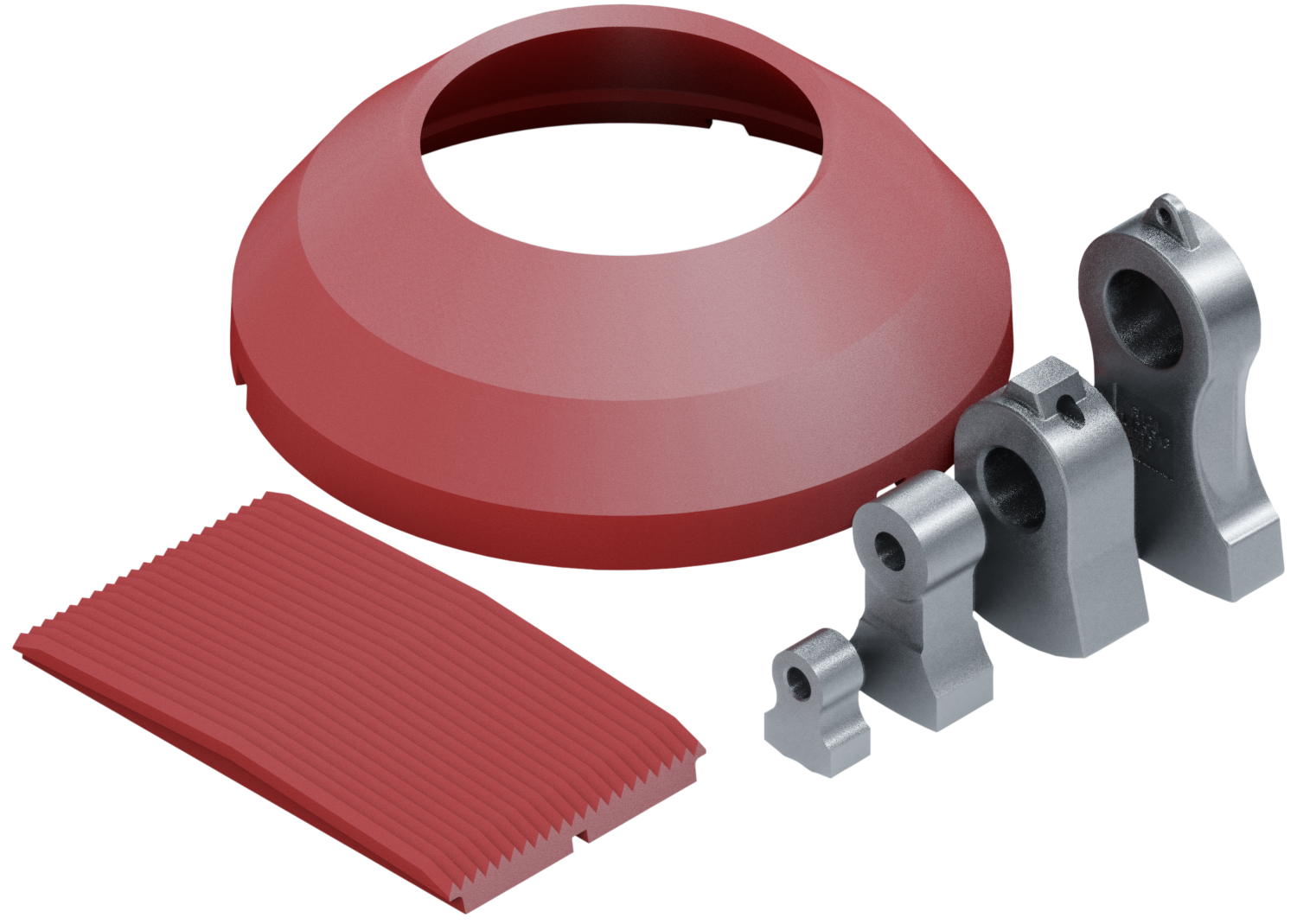Cast steel and cast iron castings
KGHM ZANAM manufactures castings in a wide range of weight options, offering low- and medium-volume production as well as one-off production. Heat treatment of castings is carried out in modern and fully automated furnaces. The products are characterised by durability and wear resistance.
The regular offer of KGHM ZANAM includes cast steel and cast iron castings manufactured in several product groups, e.g.:
-
castings for jaw, cone, impact, and hammer crushers,
-
castings for mills used in the processing of metal ores, mineral resources, hard coal and brown coal (linings, armour plates, screen plates, inlets, feeds, journal protection, beaters, shields, and others),
-
castings for teeth and track chain links in excavators and loaders,
-
castings for mining backfill accessories (pipes, elbows, tees),
-
components for heavy machinery (joints, brake bodies, hubs),
-
castings of anode plates and casting dies,
-
castings for haul trucks and conveyors,
-
other castings according to customers’ specifications.
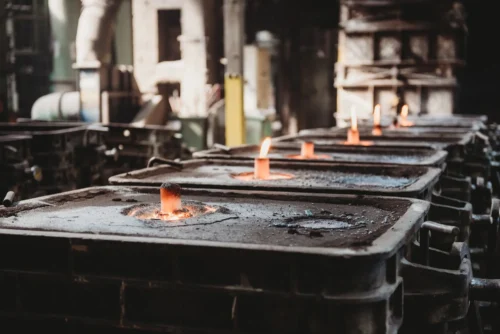
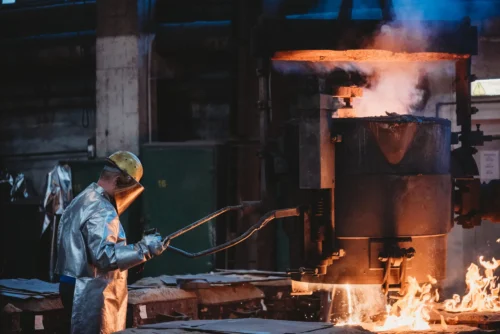
The production profile includes about 2,000 items per year, made in a wide range of cast steel and cast iron grades, with weights ranging from 5 kg to 5 tonnes. Such a large volume of available products allows us to meet the expectations, requirements, and needs of even small individual customers. KGHM ZANAM has the necessary production potential as well as technological background enabling the comprehensive execution of orders at every manufacturing stage:
-
process design preparation,
-
manufacture or adaptation of foundry models,
-
casting,
-
heat treatment,
-
machining,
-
finished product testing.
KGHM ZANAM has implemented an integrated quality assurance system based on PN-EN ISO 9001:2015-10, PN-EN ISO 14001:2015-09, and PN-ISO 45001:2018-06. Experienced staff, modern technical facilities, and certificates ensure high quality of our castings.
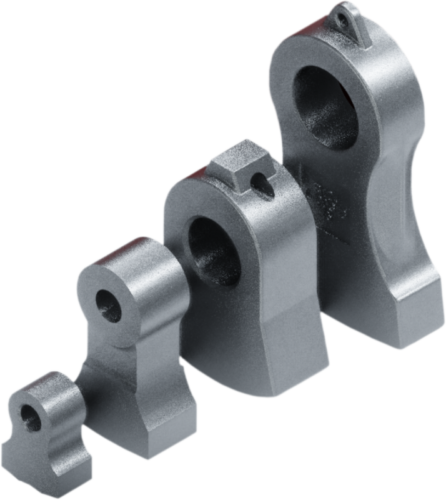
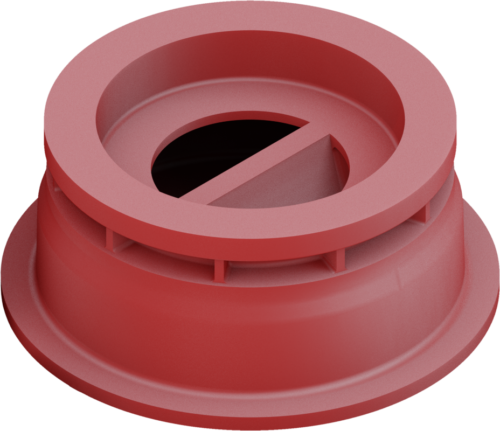
Cast steel castings
KGHM ZANAM specialises in manufacturing cast steel castings according to national and European standards. Steel grades based on our internal specifications are also produced. Our offer features grades of structural carbon cast steel, structural alloy cast steel, and cast steel for thermal upgrading and quenching, characterised by increased strength and wear resistance. The sizeable part of production includes manganese-rich and wear-resistant cast steel, whose high quality ensures long service life of the spare parts manufactured for machines used in the rock handling sector.
The wide offer of castings includes castings made of:
-
structural carbon cast steel,
-
structural alloy cast steel,
-
cast steel for quenching and tempering with increased strength and wear resistance, manufactured in accordance with national and European standards,
In addition, we manufacture cast steel castings with chemical composition and properties according to individual orders and customer needs.
All cast steel castings undergo heat treatment processes in modern and fully automated furnaces (normalising, stress relief annealing, quenching, thermal upgrading, and others).
Cast steel castings are produced in a wide weight range depending on the batch and type of moulding:
-
low- and medium-volume production in machine moulding – from 5 kg to 100 kg,
-
one-off production with manual moulding from 15 kg to 5,000 kg.
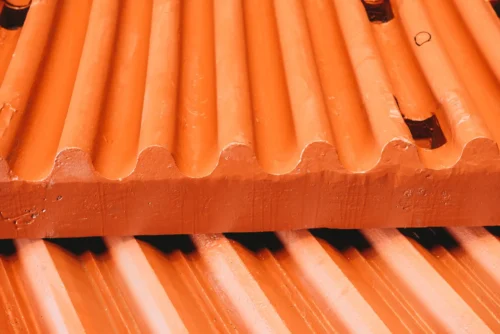
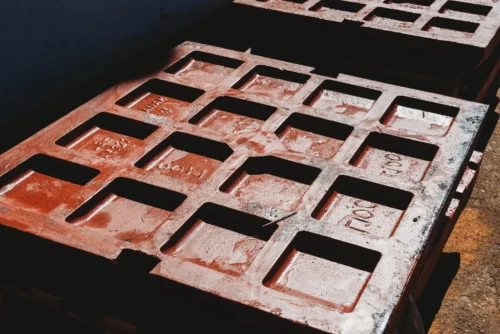
Cast iron castings
The KGHM ZANAM offers castings made of grey and ductile cast iron, which is included in both national and European standards. Manufacturing these cast irons using electric arc furnaces allows us to obtain metals of the highest quality, required chemical composition, properties, and structure, meeting the requirements of the most demanding customers. The wide offer of castings includes castings made of:
-
grey cast iron,
-
ductile cast iron,
-
alloy cast iron.
Cast iron castings can undergo heat treatment processes according to customer requirements and needs.
Depending on the batch size and the type of moulding, the weight range of cast iron castings is as follows:
-
low- and medium-volume production in machine moulding – from 3 kg to 60 kg for grey and ductile cast iron,
-
one-off production with manual moulding – from 10 kg to 5,000 kg for grey cast iron, and from 10 kg to 1,500 kg for ductile iron.
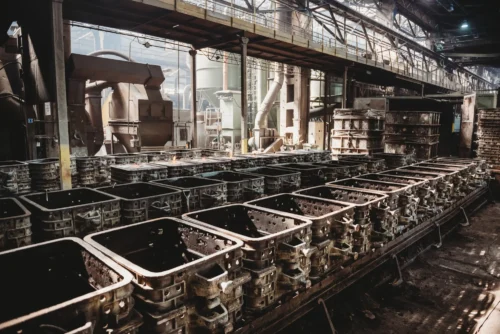
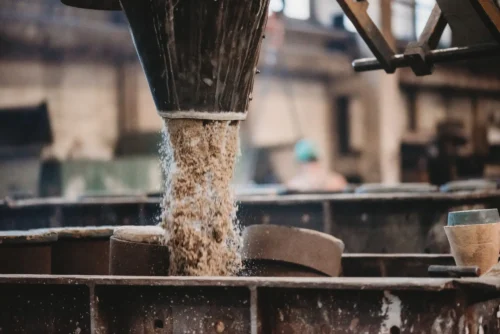
In addition, KGHM ZANAM offers a number of services related to the production of castings and steel structures:
-
annealing,
-
shot blasting,
-
visual examination,
-
non-destructive testing,
-
destructive testing,
-
testing the chemical composition of the casting,
-
approvals and certificates.
KGHM ZANAM provides heat treatment services that eliminate internal stresses through annealing. The annealing process involves heating the material to a specified temperature, annealing it at this temperature, and – usually – slowly cooling it down.
The shot blasting service offered by KGHM ZANAM involves blast cleaning of steel structure surfaces. KGHM ZANAM offers thorough blast cleaning of surfaces to their initial state with loose scale and rust, which removes any all foreign contaminants, paint coating, rust, and greasy stains (blast cleanliness class B Sa 2½).
Non-destructive testing performed by KGHM ZANAM mainly includes penetrant testing, magnetic-particle inspections, and ultrasound testing. The above tests are aimed at determining discontinuities and surface and internal defects of castings.
Non-destructive testing performed by KGHM ZANAM mainly includes penetrant testing, magnetic-particle inspections, and ultrasound testing. Non-destructive testing is used for technical equipment, steel structures, metallurgical materials, and permanent joints. This type of testing is aimed to determine surface and subsurface discontinuities of welded joints, forgings, and castings.
Testing offered by KGHM ZANAM includes Brinell hardness testing (HBW 2.5/187.5) and Vickers hardness testing (HV5), metallographic examinations (revealing macroscopic and microscopic features of the structure) as well as tensile, impact, and bending tests. The testing services also include the determination of chemical composition by spark optical emission spectrometry.




